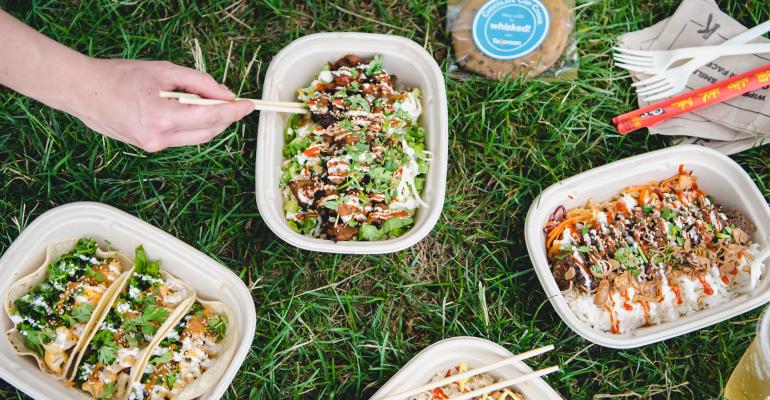Running a restaurant is hard. No one in the industry will doubt that, except for maybe the owner of TaKorean. Mike Lenard bought a food truck in a heated eBay bidding war on a whim at 24 years old and never looked back. He didn’t have any restaurant experience, but he knew he wanted to get into the space, so he thought, “well, I have to figure this all out now.”
“Everything's hard. But food trucks are uniquely challenging. From an operations standpoint, running a [brick-and-mortar] restaurant, it's actually a little bit more straightforward,” Lenard told Nation’s Restaurant News.
After running the successful food truck for several years, Lenard decided to close the truck and focus on the restaurant alone.
“Brick-and-mortar restaurants are more intensive in some ways, but you don't have water pumps breaking and generators breaking, and we would get inspected by the health department like 26 times a year,” he said. “We found that moving to brick-and-mortar gave us a real opportunity to build the real operations behind the company and kind of mature.”
The Korean and El Salvadorian restaurant is full of recipes that Lenard developed himself after extensive research from talking to others in the industry about trends and what would do well.
“I also looked at it from a business standpoint, it wasn't just some kind of project based on purely food passion,” he said. “I wanted to pick a concept that I thought I was going to operationally execute correctly in a food truck environment, which ended up translating also very well to the fast-casual environment.”
Around 2010, when he started the concept, there were Korean and Mexican fusion restaurants popping up on the West Coast, but nothing on the East Coast, especially in D.C. where he’s located.
The first brick-and-mortar location for the chain was inside D.C.’s famous food hall, Union Market.
Three of the locations that have opened since the brand’s inception, two in D.C. and one in Philadelphia, have since closed, but it hasn’t stopped Lenard from continuing to move forward. TaKorean currently has two locations open in D.C. and recently began to franchise.
“It's no secret we'd like to be national and have 100 or more locations,” he said. “We don't want to get there overnight.”
For now, TaKorean is trying to grow in the Mid-Atlantic region and the D.C. area with its new pool of franchisees.
“We really want to be in fun shopping centers and fun retail strips that have good co-tenancy, a good kind of vibe,” he said. “And serve different constituencies at different times of the day.”
As for what Lenard is looking for in a franchisee, “good employee culture” is key he says.
“Understanding workers issues and creating paying people well and things like that,” he said. “And as a franchisee, there's a lot of things you have to do to uphold the brand standards but, you are the employer, we want the culture we've created in our own company to some extent in the franchise system.”





